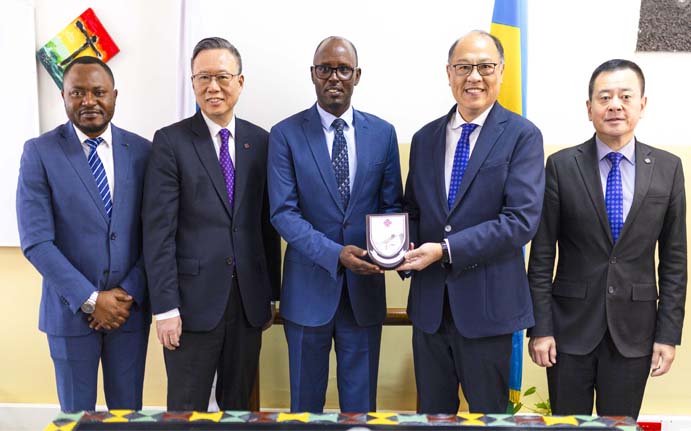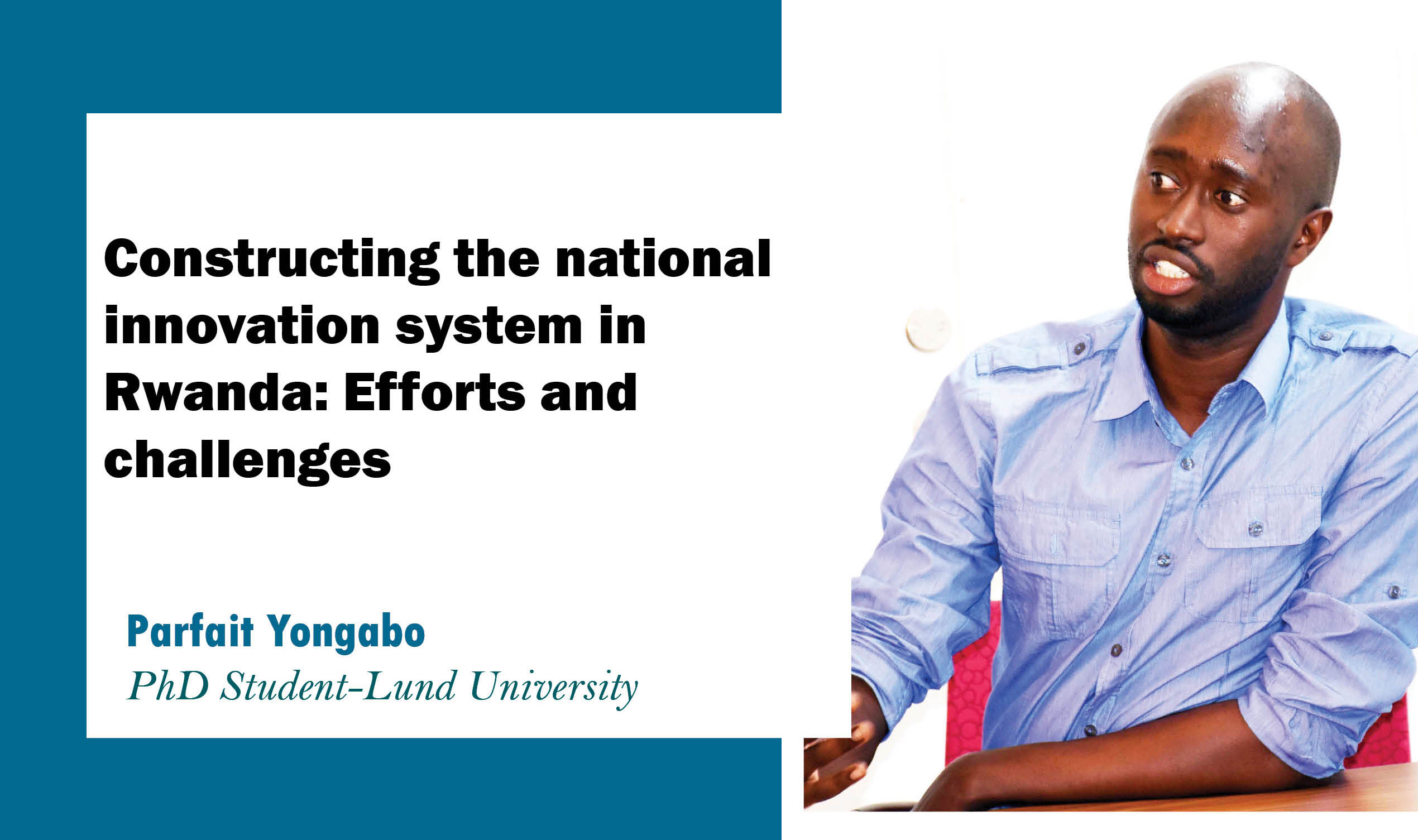
Mastercard Foundation scholars urged to be a shining example amid summer camp
- 28-06-2024
- 410
The National Innovation Systems is generally defined as a framework to understand and organize the flow of knowledge among people, enterprises and institutions, which is key to the innovation performance of a country. In his recent research, Parfait Yongabo discusses Rwanda’s efforts in the construction of the National Innovation System-NIS while identifying weak areas that are likely to affect the building up of sustainable innovation capabilities. Under the title Constructing the national innovation system in Rwanda : efforts and challenges the research is poised to contribute to Rwanda’s aspiration towards knowledge-based economy as reflected in the national development plans and programmes.

Parfait Yongabo is following PhD studies in Research Policy at Lund University in Sweden.
The research approached categories of institutions, including government institutions (ministries, public research agencies and policymaking agencies), academic and research institutions, private sector and research funding bodies. The criteria for selecting the institutions were that they have a mandate either to perform research or to regulate research in some form.
The research examines how the concept of NIS has been received by the Science, Technology and Innovation-STI community in Rwanda and how well it has been integrated into the capacity building process for sustainable innovation. Moreover, it identifies the prevailing perceptions of the STI stakeholders in Rwanda on what are the major challenges and obstacles in making science, technology and innovation an effective force for socio-economic development. In doing so, it contributes to the growing field of research exploring and contextualizing the NIS concept in a developing countries’ setting.
The research shows that Rwanda exhibits promising progress in the process of establishing and reinforcing infrastructures and institutions as well as policies to promote innovation. However, there are still challenges associated with low research capacity, low level of interactions among stakeholders, limited financial resources as well as lack of coordination framework, all of which contribute to hampering the building up of sustainable innovation capabilities.
The survey of STI personnel in Rwanda reveals that the NIS concept in Rwanda is not uniformly understood by all stakeholders. The general low level of awareness of the concept among some stakeholders makes it harder for the actors in the innovation system to work in harmony.
“Without a clear understanding of the inner workings of the innovation system, the identification and alignment of inter and intra-institutional responsibilities become haphazard at best” the research argues.
Moreover, participants in research highlighted the performance of problem-based research as a key driver for constructing a NIS but the Rwandan research environment shows a low level of interaction among researchers and research end-users.
“This makes research that is being conducted unresponsive to demands of the society” observed participants, adding that a strong education system can help in building the Rwandan NIS as this can be the source of qualified graduates who can serve in the business sector as well as the society at large.
In addition, participants pointed out low level of collaboration between academic/research institutions and the private sector. The lack of interactions may also be linked to poor coordination and facilitation from public institutions that are mandated to do that.
Other management challenges highlighted in the research include lack of policy implementation mechanisms and tools, lack of skilled human capital for policy formulation and implementation, lack of awareness on the existence of some policies and laws, duplication and overlaps among policies to mention but a few.
At a policy level, the research suggests considerable efforts in stabilizing policies through the enhancement of policy-making processes that involve key actors in the system. This would contribute to overcoming the identified challenge of policy implementation and coordination. This can also contribute to building long term relationships among actors involved in the process and a departure from crisis management interventions.
It was further recommended that for emerging national innovation systems, the setting up of organizations and institutions for facilitating the production, acquisition, diffusion, transfer and use of economically valuable knowledge are among the key steps. Knowledge infrastructures development is important as well as human capital development.
Yongabo is a faculty member of the College of Agriculture, Animal Science and Veterinary Medicine, University of Rwanda currently following his PhD studies in Research Policy at Lund University in Sweden. He is among the UR-Sweden Program PhD students under the bilateral research cooperation between Rwanda and Sweden supported by Swedish International Development Cooperation Agency (Sida).